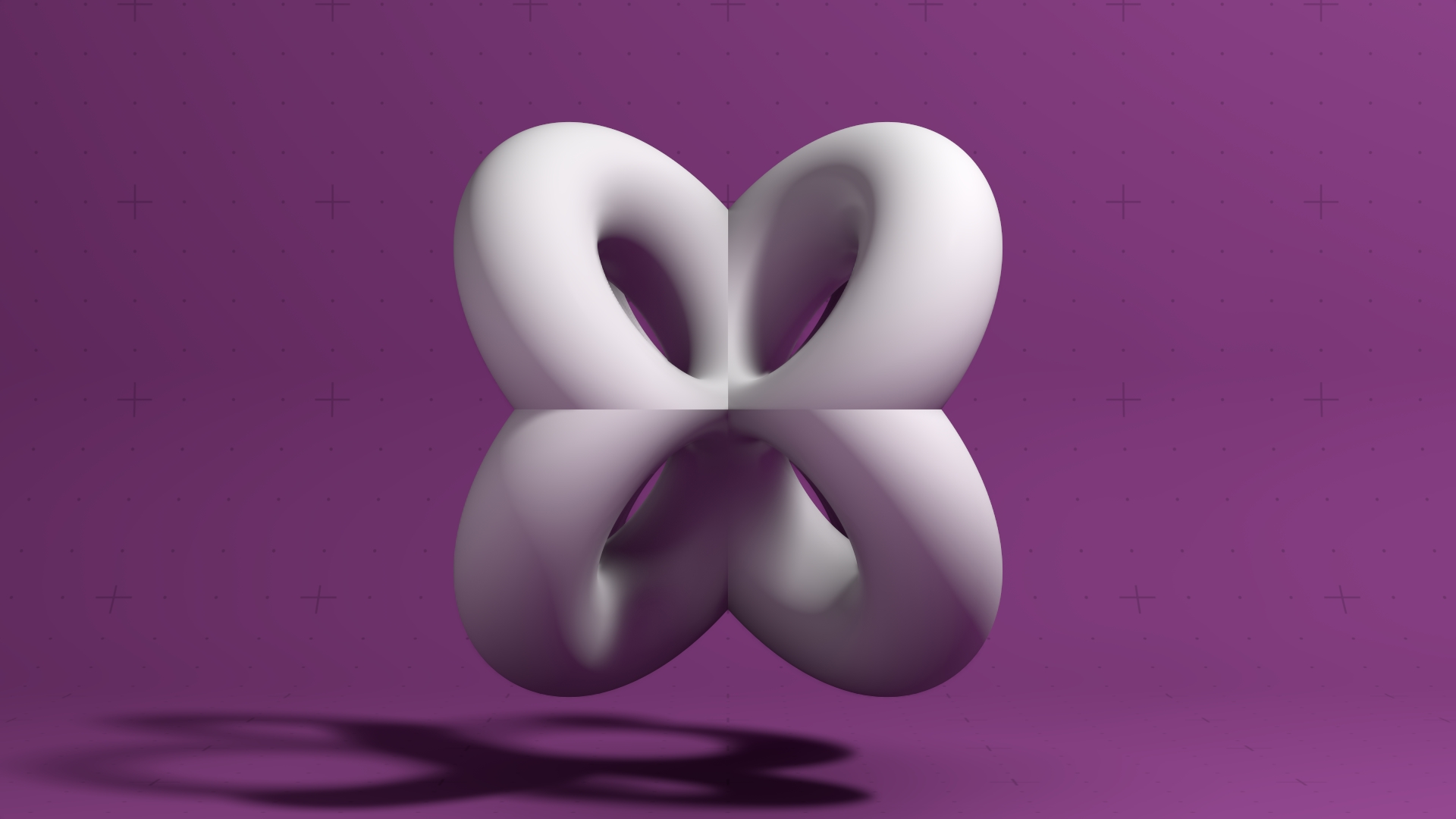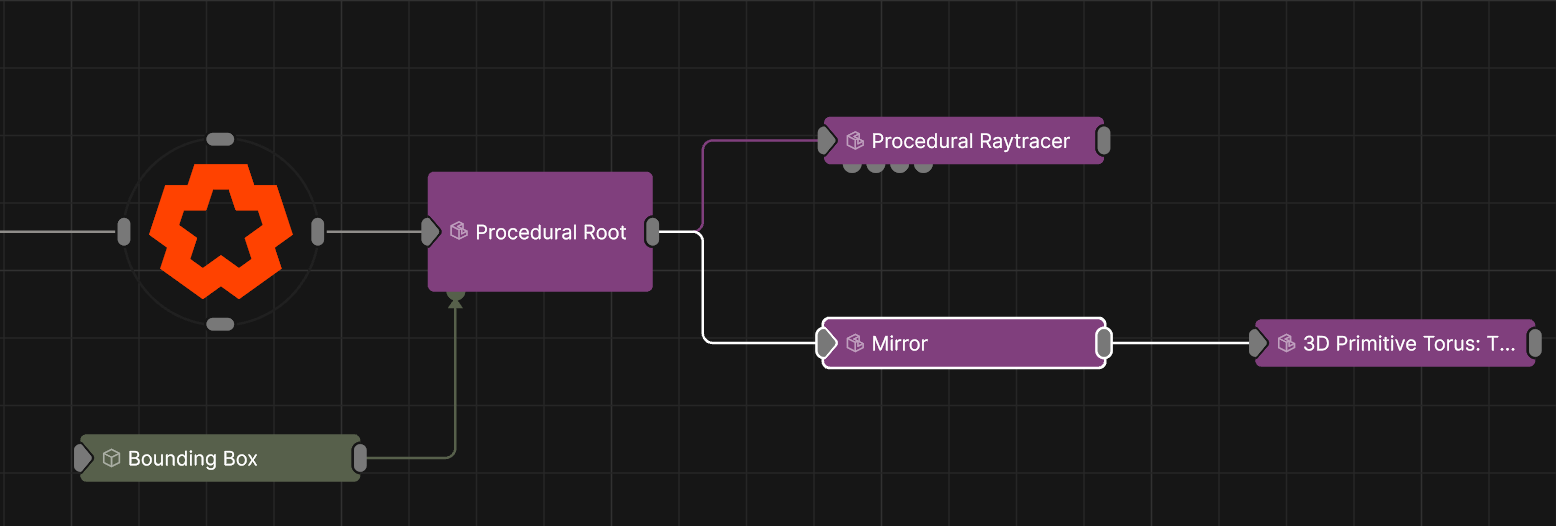Mirror
Updated: 30 Jan 2026
Mirror children in a Procedural system.

Updated: 30 Jan 2026
Mirror children in a Procedural system.

This node effectively mirrors its children on one or multiple planes of reflection.
Nodes that are to be mirrored should be connected to the output of this node. Any Procedural node can be connected, although the render nodes cannot be cloned.
These properties control the 3D transforms of the node. Transforms will generally be inherited by child nodes, although they can be ignored through the Inherit Transform Channels attributes.
| Parameter | Details |
|---|---|
| Position X | The objects position along the local x-axis. |
| Position Y | The objects position along the local y-axis. |
| Position Z | The objects position along the local z-axis. |
| Rotation Heading | The objects rotation around the local y-axis. |
| Rotation Pitch | The objects rotation around the local x-axis. |
| Rotation Bank | The objects rotation around the local z-axis. |
| Scale X | The objects scale along the local x-axis. |
| Scale Y | The objects scale along the local y-axis. |
| Scale Z | The objects scale along the local z-axis. |
Control the inheritance of the transforms from the parent.
| Parameter | Details |
|---|---|
| Position | Toggle inheritance of the Position from the parent. |
| Rotation | Toggle inheritance of the Rotation from the parent. |
| Scale | Toggle inheritance of the Scale from the parent. |
| World Position Only | Inherit the world position from the parent only, rotation and scale will be ignored. Overrides above properties. |
| Inherit Time | Toggle inheritance of time from the parent. |
These properties control the core behaviours of the node.
| Parameter | Details |
|---|---|
| Mirror Mode |
Select which axis along which to mirror the procedurals.
|
| Mirror Offset X | Offsets the x/y/z coordinate of the mirror’s position. |
| Mirror Offset Y | Offsets the x/y/z coordinate of the mirror’s position. |
| Mirror Offset Z | Offsets the x/y/z coordinate of the mirror’s position. |
| Count | Number of shapes to be generated when in radial mode. |
| CSG Mode |
These options change how a this procedural node combines with the existing of the procedural system.
|
| CSG Blend Weight | How much the new procedural blends with the old procedurals, depending on the CSG Blend Weight. |
| CSG Stair Count | How many steps in the transition when using the “Stairs” CSG Mode. |
| Affect Colour | Affect the colour of the generated procedural system. only functions with ‘Generate Colours’ enabled in some Procedural Render nodes. |
| Always Enabled (No Time Bars) | When enabled, this node will run regardless of time bar enable/disable. Due to how Notch handles shader generation with procedurals, with this enabled the node runs more efficiently. |
| Material Colour | Modify the colour for the procedural material. |
| Custom CSG Code | Type your Custom code here, using the HLSL language. Read more on Editable Code. |
The properties control the time at which the node is active. See Timeline for editing time segments.
| Parameter | Details |
|---|---|
| Duration |
Control the duration of the node’s time segment.
|
| Node Time | The custom start and end time for the node. |
| Duration (Timecode) | The length of the node’s time segment (in time). |
| Duration (Frames) | The length of the node’s time segment (in frames). |
| Time Segment Enabled | Set whether the node’s time segment is enabled or not in the Timeline. |
| Name | Description | Typical Input |
|---|---|---|
| Transform Modifiers | Apply the transforms of another node to this node. | Null |
| Target Node | Modifiy the rotations of the node to always direct the z axis towards the input. | Null |
| Local Transform Override | Apply the transforms of another node to this node, relative to its parent. | Null |